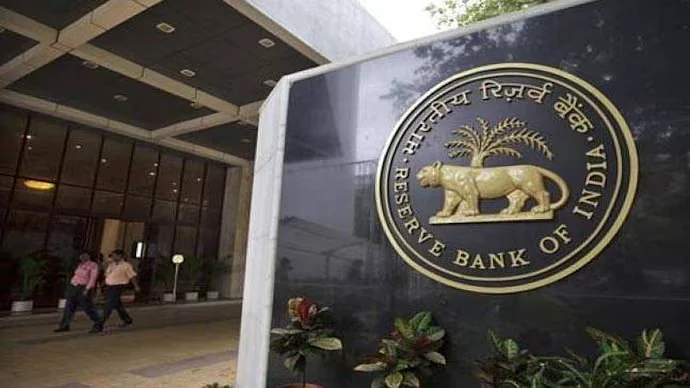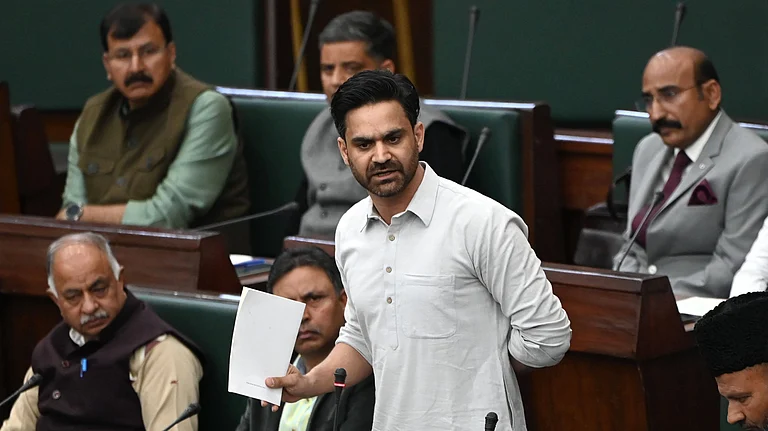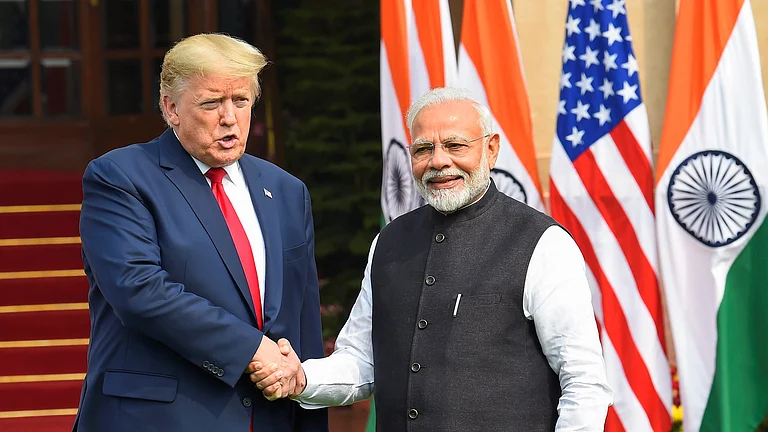The Reserve Bank of India (RBI) left its key interest rates unchanged on Friday as expected, keeping the focus on inflation amid robust economic growth that is likely to provide the new Modi government headroom for manoeuvring reforms.
The Monetary Policy Committee, consisting of three RBI and an equal number of external members, kept the repo rate unchanged at 6.50 per cent for an eighth straight policy meeting and stuck to its relatively hawkish stance of "withdrawal of accommodation", Governor Shaktikanta Das said in his statement.
However, there were signs of a more divided policy committee, with one additional member voting for a softening in stance as well as policy direction. Two external members, Ashima Goyal and Jayanth Varma, voted for a cut, compared to one in the previous meeting. The decision comes just days ahead of Narendra Modi assuming the office of the Prime Minister of India for the third straight time but with a smaller-than-expected election victory that forced his party BJP to share power in a coalition government.
The slim majority, according to global rating agencies, may delay more far-reaching elements of economic and fiscal reforms like land and labour, and impede progress on fiscal consolidation.
With the Indian economy, Asia's third-largest, growing faster than expected in the previous year, the RBI raised its GDP growth projection for the current fiscal through March 2025 to 7.2 per cent from 7 per cent while maintaining its inflation forecast at 4.5 per cent.
India's real GDP grew by 8.2 per cent in the 2023-24 (April 2023 to March 2024) fiscal year, while inflation was 4.83 per cent in April, above the RBI's target. The FY24 growth was helped by a faster-than-expected pace of 7.8 per cent in the March quarter.
Das said while the MPC took note of the disinflation achieved so far without hurting growth, it remains vigilant to any upside risks to inflation, particularly from food inflation, which could possibly derail the path of disinflation.
"Monetary policy must continue to remain disinflationary and be resolute in its commitment to aligning inflation to the target of 4.0 per cent on a durable basis," he said.
"Sustained price stability would set strong foundations for a period of high growth."
The RBI, he said, will continue to be nimble and flexible in its liquidity management through fine-tuning operations in repo and reverse repo. "We will deploy an appropriate mix of instruments to modulate both frictional and durable liquidity so as to ensure that money market interest rates evolve in an orderly manner, which preserves financial stability."
The governor hinted that the RBI may be willing to move before the US Federal Reserve pivots a rate cut, saying the central bank's monetary policy actions are determined by domestic growth and inflation conditions.
"I’d like to unambiguously state while we do keep a watch on whether clouds are building up or clearing out in the distance horizons, we play the game according to the local weather pitch conditions," he said.
Commenting on the MPC decisions, Radhika Rao, Executive Director and Senior Economist, DBS Bank, said there were signs of a more divided policy committee, with one additional member voting for a softening in stance.
"The majority retained their cautious stance to guide inflation towards the 4 per cent target on a durable basis, despite recent signs of disinflation."
"The MPC also signalled that they will not react to the upcoming base-effect-driven correction in inflation in 2Q FY25, lowering the probability of a shift in 2H 24. In all, the mix of strong growth and above-target inflation does not make a case for a shift to a less restrictive policy setting yet, validating our view that rate easing is not on the cards this year. Political developments are not expected to sway the monetary policy direction or outlook," she said.
Suman Chowdhury, Chief- Economist and Head- Research, Acuite Ratings & Research said there were no surprises in the RBI decision.
"The RBI has continued to reaffirm its commitment to sustainable disinflation and price stability without providing any indication on the monetary policy pivot. The central bank would continue to watch out for any upward risks in food inflation in the near term, despite the forecast of an 'above normal' monsoon. Further, it may also monitor the revised upcoming Union Budget to track the possible increases in welfare spend and its potential impact on inflation, although the high RBI dividend of Rs 2.1 trillion will mitigate the potential risks for now."
On liquidity, Chowdhury said the high dividend of Rs 2.1 lakh crore by the RBI to the government has been positive for short-term interest rates.
"But we expect the RBI to calibrate system liquidity appropriately and facilitate better monetary transmission through absorption of any excessive liquidity portion that may arise after the restart of government spending and the expected inflows from debt FPIs amidst India's inclusion in the JPM bond indices."
Given the tone of the MPC statement and the expectation of stronger domestic growth, there is a low likelihood of any rate cut by the RBI in the current calendar year, he added.
Among other decisions, the RBI raised the bulk deposit limit to Rs 3 crore from Rs 2 crore currently and allowed the inclusion of payments like replenishment of balances in Fastag in e-mandates for recurring payments as well as automatically replenishing UPI Lite wallets.


























